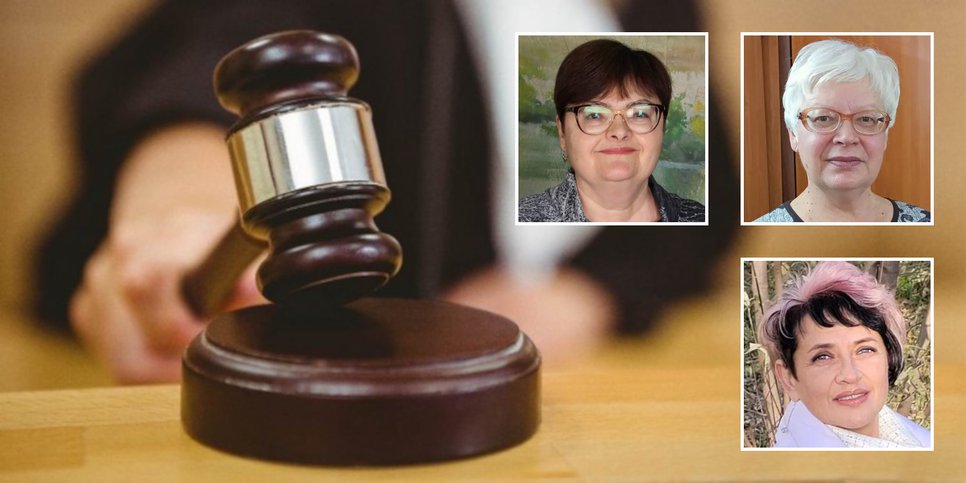Tatyana Svoboda, Tatyana Bondarenko, Elena Nesterova
Tatyana Svoboda, Tatyana Bondarenko, Elena Nesterova
On Trial for Their Faith and Hope for the Future. Court of Appeal in Khabarovsk Upheld the Guilty Verdict Against Three Women
Khabarovsk TerritoryOn July 4, 2023, a panel of judges of the Khabarovsk Territory Court partially granted the prosecutor's appeal against the verdict against Tatyana Svoboda, Elena Nesterova and Tatyana Bondarenko. In addition to the suspended sentence, the court of appeal imposed 1 year and 8 months of restriction of freedom.
The believers maintain their innocence and have the right to appeal the verdict in cassation procedure.
The women stated in the appeal that they were convicted as a result of a miscarriage of justice "for professing Bible-based beliefs and peacefully practicing their Christian faith as Jehovah's Witnesses." They also noted: “The court of first instance did not take into account that the RF Supreme Court did not ban the religion of Jehovah’s Witnesses, and therefore erroneously ruled that any activity of individuals in connection with practicing this religion is criminal and should be regarded as continuing the activity of the banned organization.”
Throughout the trial, the believers never denied being Jehovah's Witnesses or discussing Bible teachings with others. In their final statement, they explained that their goal was the peaceful expression of their faith in God. Tatyana Svoboda said: "Just the name of my religion, as one of Jehovah's Witnesses was the reason for the criminal prosecution." Elena Nesterova added: “I don’t understand how a person who tries to live according to God’s standards can be considered a criminal? After all, that is what helps a person become better and kinder.”
The ruling of the Constitutional Court of the Russian Federation states: “The norm contained in it [in Article 282 of the RF CrC] is aimed at protecting public relations that guarantee recognition and respect for the dignity of the individual, regardless of any physical or social characteristics, and establishes criminal liability not for all actions, but only for those that are committed with direct intent aimed at inciting hatred or enmity, degrading treatment of a person or a group of persons”. In the case of Tatyana Svoboda and others, the court did not specify what kind of extremist actions the defendants had committed and did not provide evidence that they had the intent to commit a crime.



